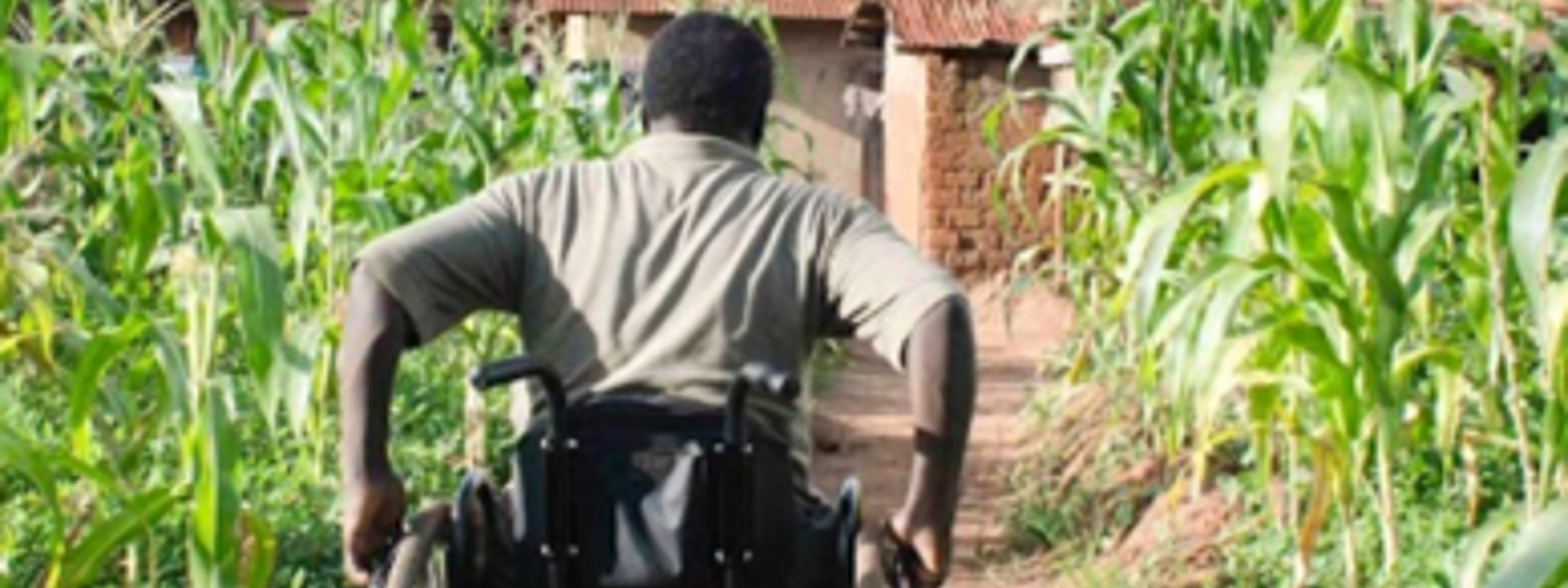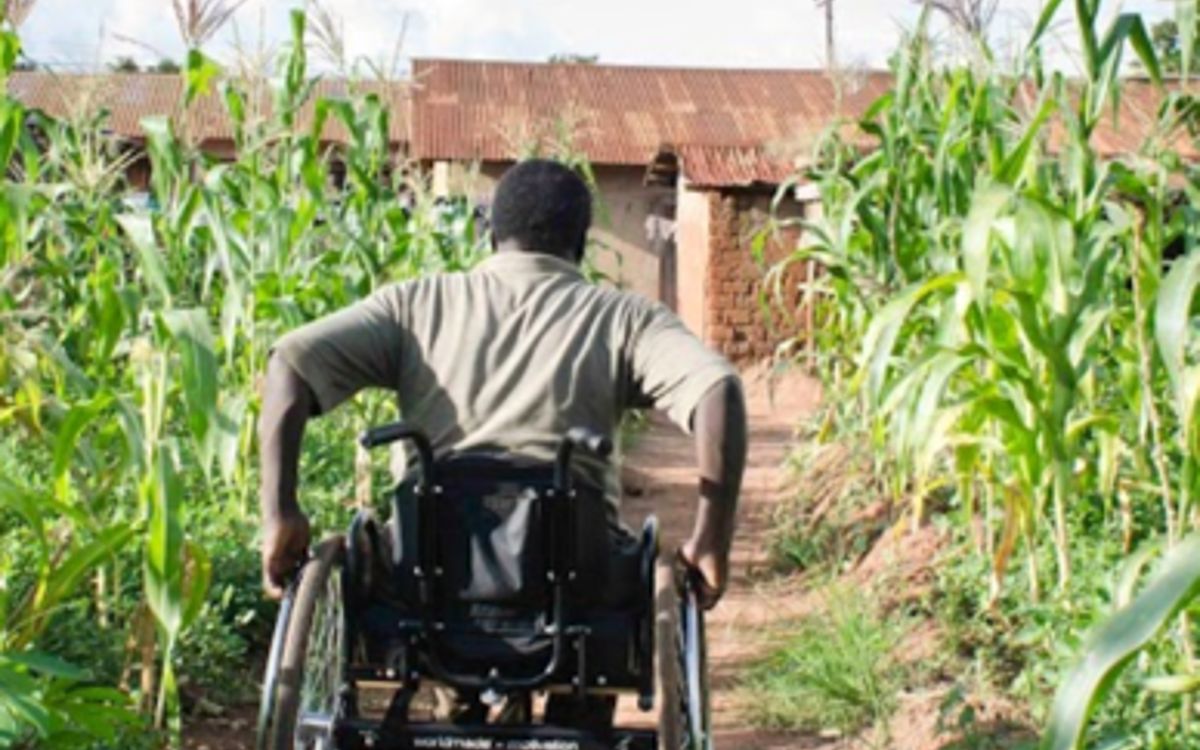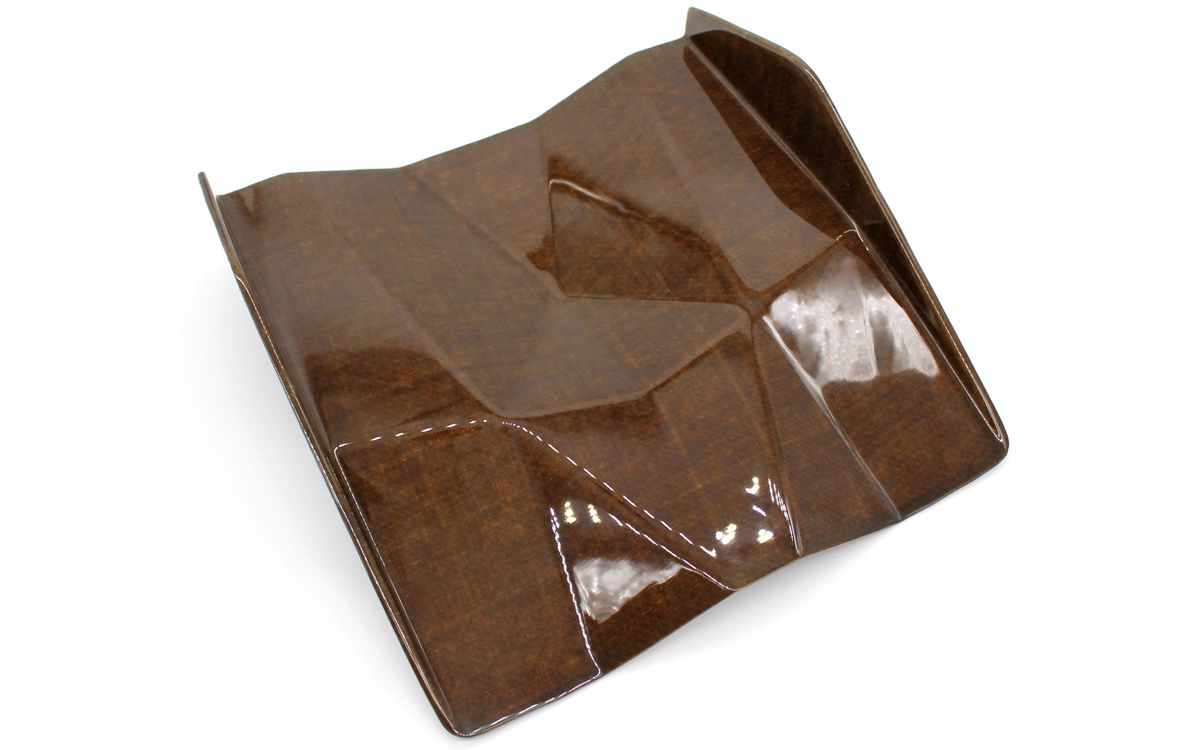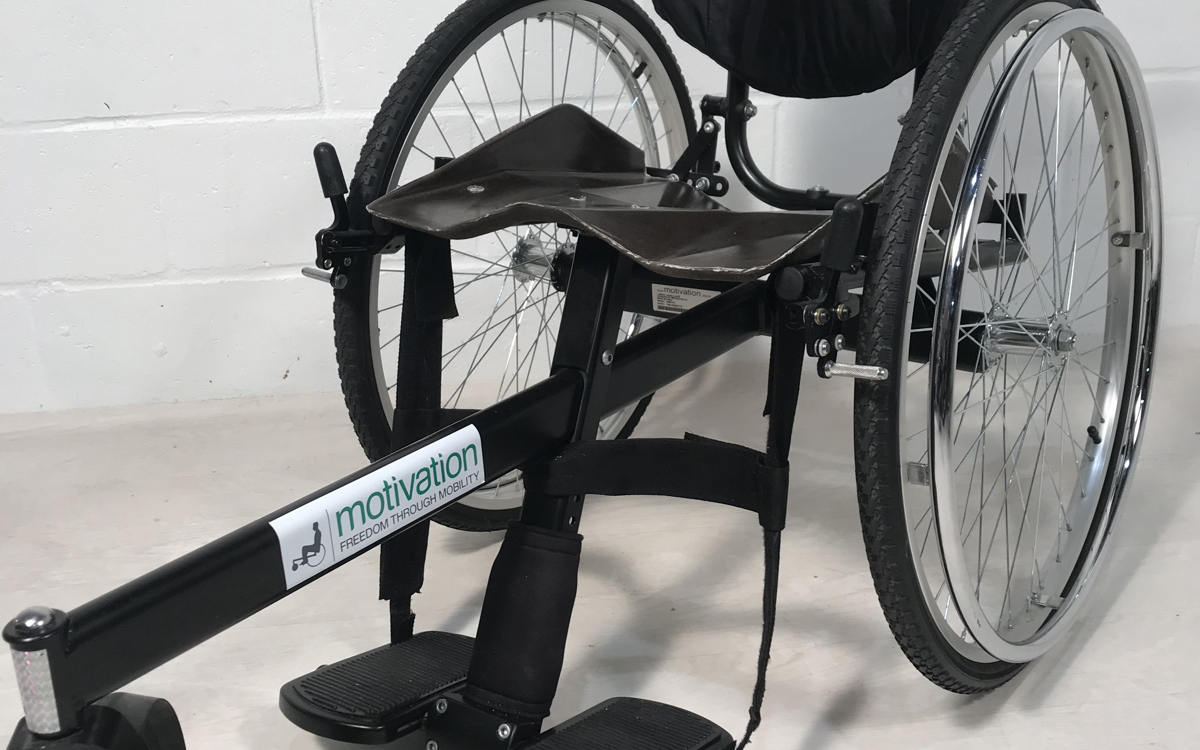
Building a sustainable wheelchair seat for disabled people in developing countries
The National Composites Centre (NCC) and Motivation have collaborated to manufacture a wheelchair seat pan concept made entirely from sustainable, green composite materials that are not only better for the environment but could significantly improve the quality of life for disabled people in developing countries.
Challenge
Motivation, a global disability charity and social enterprise that provides wheelchairs, training and services to disabled people in low- and middle-income countries, approached the NCC for help in designing a new wheelchair seat pan concept that would be robust to cope with rough terrain, affordable to produce, and made from bio-based materials that could be locally sourced within those countries. Most importantly, the charity wanted to prove the concept of a new design that would offer a much more comfortable, lightweight, durable and hygienic solution. There are 75 million people worldwide in need of a wheelchair - and 80% of them live in developing countries.
Composites are well-known for their durability, strength and light-weighting properties. The charity currently produces wheelchair cushions made from polyurethane (PU) foam, which sit on either fabric 'slung' seats that are tensioned between framed sides, or a plywood base. These provide postural support and pressure management that is vital to wheelchair users who are at risk of developing pressure sores and other medical issues, leading to hospitalisation, increasing healthcare costs, reduced quality of life and even death. However, the constant and prolonged use of fabric seats can result in stretching that compromises user posture, while plywood may degrade. The sculpted foam cushion may also degrade or become unhygienic due to hot, humid climates and potential soiling. It is also possible that a separate cushion may be lost.

Innovation
The NCC worked with Motivation to design and manufacture the prototype composite wheelchair seat pan that can be moulded to the user needs to ensure a surface that provides long-term postural control and pressure management. A thin cushion is then to be added, replacing the sculpted PU cushions currently in use.
Motivation's drive toward local manufacture is looking to find scalable low-cost and environmentially sensitive solutions, so Bcomp amplitex™ flax fibre supplied by Gurit and the Sicomin Infugreen resin were selected as the base materials to demonstrate the new design. They do not require high cost manufacturing techniques often used in composite manufacture and require a cure time and temperature that is suitable and sustainable within those areas. The ampliTex™ solution can also easily be made with different natural fibres for different locations, such as jute for Asia or sisal for South America, bringing the manufacture to local areas which cuts down on shipping costs and upskills local people.
The prototype seat pan was manufactured at the NCC using resin infusion however, it has been designed so that wet lay-up can be used for lower skilled production. Bio-based resin systems help to further reduce the environmental impact of the materials.
The initial costs to manufacture the green composite seat are slightly more than the standard plywood or fabric seats; however, the long-term benefits of quality of life and durability completely outweigh the initial increase in production costs.
The prototype seat pan was manufactured at the NCC using resin infusion however, it has been designed so that wet lay-up can be used for lower skilled production. Bio-based resin systems help to further reduce the environmental impact of the materials.
Based on this material and manufacturing technique, the team altered the seat pan CAD developed by Motivation to support the loadcase of a 90kg user. They also added a cork core to provide form stiffness. The NCC team developed a low-cost tooling solution based on the shape and manufacturing method to help keep the cost of manufacture as low as possible.

Impact
- This new design is lighter than the plywood equivalent and provides greater physical support, both of which improve the quality of life for the user, providing reliable "built-in" postural control and reducing the potential cost of care from hospitalisation.
- The bio-composites used to make the seat are much more durable for constant use in aqueous or dusty environments, improving sustainability through extended service life.
- Hygiene is vastly improved; when soiled, it is easier and cheaper to replace the thin foam liner of a seat pan than an entire unrecyclable PU cushion, and the support offered by the seat pan is not compromised.
- Natural fibres allow materials to be locally sourced in developing countries, therefore reducing environmental impact of fibre production and transport.
- Enabling local manufacture will also help create jobs for local people within developing countries.
Special thanks go to Project 12, who kindly treated the prototype seat pan using their state-of-the-art coating system for flax-based composites: www.project-12.co.uk

